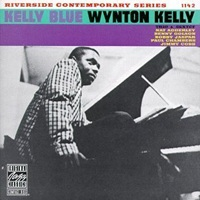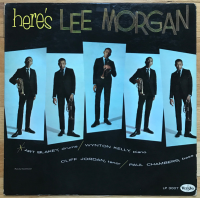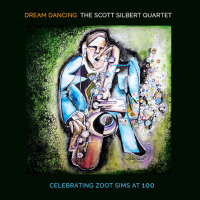Home » Jazz Articles » Wynton Kelly
Jazz Articles about Wynton Kelly
Kelly Blue

by C. Michael Bailey
The classic Wynton Kelly Trio comprised Kelly on piano, bassist Paul Chambers, and drummer Jimmy Cobb. Besides being Kelly's most stable trio, this rhythm section provided the underpinning for several important recordings and tours for Miles Davis in the late '50s and early '60s. These include Kind of Blue (Columbia Records, 1959) and Davis' 1960 European Tours, Someday My Prince Will Come (Columbia Records, 1961), In Person, Vol. 1--Friday Night at the Blackhawk (Columbia Records, 1961), In Person, Vol. 2--Saturday ...
Continue ReadingLee Morgan: Here's Lee Morgan

by C. Andrew Hovan
While Craft Recordings' new OJC reissue series has largely drawn from its treasure trove of Prestige and Riverside titles, the label recently expanded its scope to include two standout jazz albums from Chicago's historic Vee-Jay Records. Founded in 1953 by husband-and-wife team James Bracken and Vivian Carter, Vee-Jay was not only one of the earliest Black-owned and woman-owned labels but also a remarkably eclectic imprint. Known for its blues releases--and even some early Beatles records--Vee-Jay also documented top-tier ...
Continue ReadingArt Pepper: Gettin' Together

by Richard J Salvucci
Roughly about a year before Art Pepper was sentenced to 3 to 20 years in San Quentin State Prison on heroin charges, he made this recording. Miles Davis' rhythm section was briefly available in Los Angeles. So Pepper had a chance to reprise his wonderful performance in Art Pepper Meets the Rhythm Section (Original Jazz Classics, 1957), albeit with different personnel and with the addition of Conte Candoli on trumpet. The recording was a kind of coda to the first ...
Continue ReadingWes Montgomery: Maximum Swing: The Unissued 1965 Half Note Recordings

by Mario Calvitti
La Resonance Records, etichetta californiana legata a un'organizzazione non-profit dedita a preservare l'arte e l'eredità della musica jazz, prosegue instancabile la sua attività di archeologia musicale pubblicando questo doppio CD di Wes Montgomery col trio del pianista Wynton Kelly al famoso club di New York Half Note nel 1965, all'incirca nello stesso periodo delle esibizioni raccolte nell'album Smokin' at the Half Note. I brani contenuti in questa raccolta provengono da cinque diverse date comprese tra il 24 Settembre e la ...
Continue ReadingWes Montgomery: The Complete Full House Recordings

by Mark Sullivan
Wes Montgomery's original Full House album (Riverside, 1962) comprised six tracks; the 1987 CD edition had nine tracks, with alternate takes plus the addition of “Born to be Blue"; the 2007 reissue was expanded to eleven tracks. This complete edition has fourteen tracks, including all of the previously released alternate takes as well as the completely unedited master take of the title tune, with Montgomery's original guitar solo restored. That restoration is the big news for completists but, for everyone ...
Continue ReadingWynton Kelly, Jason Moran, Christian McBride, Geri Allen

by David Brown
This week we will we celebrate some birthdays including the legendary pianist Wynton Kelly known for his lively, blues-based playing and as one of the finest accompanists in jazz. I'll spin some tunes I heard at Jason Moran's Village Vanguard Thanksgiving weekend run; we'll play some music to get ready for Christian McBride's New Jawn here in Philly; and finally, let's check in with some recordings made on this day in history from John Coltrane, Sonny Rollins and David S. ...
Continue ReadingMiles Davis Quintet: Live Europe 1960 Revisited

by Chris May
A high proportion of the studio albums recorded by Miles Davis from the mid 1950s until Bitches Brew (Columbia) in 1970 are landmark ones, so frequent and so momentous were the occasions on which Davis adjusted his direction. With a few exceptions, notably My Funny Valentine (Columbia, 1964), this is less true of the live albums until the early 1970s, when Davis' live performances increasingly anticipated changes later heard on studio recordings, especially as regards his choices of repertoire.
Continue Reading















